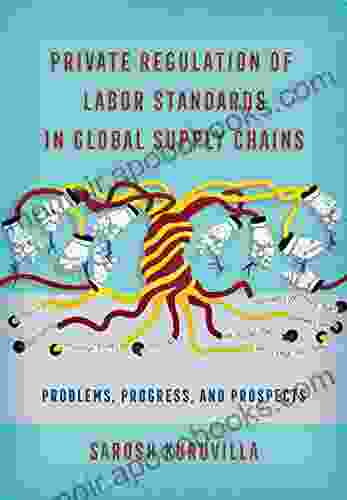Baby Food Big Business: Its Impact on Labor Culture and Society After

The baby food industry is a multi-billion-dollar enterprise that has played a significant role in shaping the way we feed our children. However, the industry's history is also one of controversy and debate, as critics have raised concerns about the health, safety, and marketing practices of formula companies.
4.2 out of 5
| Language | : | English |
| File size | : | 2468 KB |
| Text-to-Speech | : | Enabled |
| Screen Reader | : | Supported |
| Enhanced typesetting | : | Enabled |
| Word Wise | : | Enabled |
| Print length | : | 228 pages |
In her book, Baby Food Big Business: And the Remaking of Labor Culture and Society After, sociologist Sarah Holmes explores the history of the baby food industry and its impact on the lives of women, families, and society as a whole. Holmes argues that the industry has played a key role in promoting the nuclear family and the idea that women's primary role is to stay home and care for their children.
Holmes's book is a valuable contribution to the literature on the history of the baby food industry. It is a well-researched and comprehensive account that sheds new light on the industry's impact on society. The book is also an important reminder that the decisions we make about how to feed our children have far-reaching implications.
The History of the Baby Food Industry
The baby food industry began in the late 19th century with the invention of baby formula. Formula was originally developed as a way to feed babies who were unable to breastfeed. However, as formula became more popular, it began to be marketed as a convenient and nutritious alternative to breast milk. As a result, the baby food industry began to grow rapidly.
In the early 20th century, the baby food industry began to consolidate. A few large companies, such as Gerber and Heinz, came to dominate the market. These companies spent heavily on advertising and marketing, and they were successful in convincing many mothers that formula was the best way to feed their babies.
The baby food industry continued to grow rapidly throughout the 20th century. In the 1950s, the of jarred baby food made it even easier for mothers to feed their babies formula. As a result, the percentage of babies who were breastfed in the United States declined significantly.
The Impact of the Baby Food Industry
The baby food industry has had a significant impact on the lives of women, families, and society as a whole. For women, the industry has helped to create the idea that women's primary role is to stay home and care for their children. This idea has been reinforced by the industry's marketing campaigns, which have often portrayed mothers who stay home to feed their babies formula as being the ideal mothers.
The baby food industry has also had a negative impact on the health of babies. Formula is not as nutritious as breast milk, and it can increase the risk of allergies, asthma, and other health problems. In addition, the industry's marketing practices have led many mothers to believe that formula is the only way to feed their babies, which can lead to breastfeeding mothers feeling isolated and unsupported.
The baby food industry has also had a negative impact on society as a whole. The industry's marketing campaigns have created a culture of fear and anxiety around breastfeeding. This culture of fear has led many mothers to believe that they are unable to breastfeed, which can lead to them feeling inadequate as mothers. In addition, the industry's marketing practices have contributed to the normalization of the nuclear family, which has led to a decline in the number of women who work outside the home.
The baby food industry has played a significant role in shaping the way we feed our children. However, the industry's history is also one of controversy and debate. As we learn more about the health, safety, and marketing practices of formula companies, it is important to make informed decisions about how we feed our babies.
Sarah Holmes's book, Baby Food Big Business: And the Remaking of Labor Culture and Society After, is a valuable contribution to the literature on the history of the baby food industry. It is a well-researched and comprehensive account that sheds new light on the industry's impact on society. The book is also an important reminder that the decisions we make about how to feed our children have far-reaching implications.
4.2 out of 5
| Language | : | English |
| File size | : | 2468 KB |
| Text-to-Speech | : | Enabled |
| Screen Reader | : | Supported |
| Enhanced typesetting | : | Enabled |
| Word Wise | : | Enabled |
| Print length | : | 228 pages |
Do you want to contribute by writing guest posts on this blog?
Please contact us and send us a resume of previous articles that you have written.
 Book
Book Novel
Novel Page
Page Chapter
Chapter Text
Text Story
Story Genre
Genre Reader
Reader Library
Library Paperback
Paperback E-book
E-book Magazine
Magazine Newspaper
Newspaper Paragraph
Paragraph Sentence
Sentence Bookmark
Bookmark Shelf
Shelf Glossary
Glossary Bibliography
Bibliography Foreword
Foreword Preface
Preface Synopsis
Synopsis Annotation
Annotation Footnote
Footnote Manuscript
Manuscript Scroll
Scroll Codex
Codex Tome
Tome Bestseller
Bestseller Classics
Classics Library card
Library card Narrative
Narrative Biography
Biography Autobiography
Autobiography Memoir
Memoir Reference
Reference Encyclopedia
Encyclopedia Cristina Salat
Cristina Salat Crystal Stafford
Crystal Stafford Sharon Zientara
Sharon Zientara Adrian Henri
Adrian Henri Arthur J Stansbury
Arthur J Stansbury Karen Hogg
Karen Hogg Nancy Springer
Nancy Springer Suzanne Nemec
Suzanne Nemec Stephani L Stephens
Stephani L Stephens Russ Cheatham
Russ Cheatham Aida Huseynova
Aida Huseynova Aer Ki Jyr
Aer Ki Jyr Alison Hart
Alison Hart Tess Thompson
Tess Thompson Josh Stock
Josh Stock David Podlipny
David Podlipny Bekah Harris
Bekah Harris Frithjof Schuon
Frithjof Schuon K Loraine
K Loraine Richard A Peterson
Richard A Peterson
Light bulbAdvertise smarter! Our strategic ad space ensures maximum exposure. Reserve your spot today!

 Jace MitchellThe Majors: Brotherhood of War - A Captivating Tale of Courage and Sacrifice
Jace MitchellThe Majors: Brotherhood of War - A Captivating Tale of Courage and Sacrifice
 Chase SimmonsProblems, Progress, and Prospects: Unveiling the Interplay of Challenges and...
Chase SimmonsProblems, Progress, and Prospects: Unveiling the Interplay of Challenges and... William GoldingFollow ·7.9k
William GoldingFollow ·7.9k Galen PowellFollow ·7.9k
Galen PowellFollow ·7.9k Clarence MitchellFollow ·19.9k
Clarence MitchellFollow ·19.9k Matt ReedFollow ·4.7k
Matt ReedFollow ·4.7k Billy FosterFollow ·7.4k
Billy FosterFollow ·7.4k Miguel de CervantesFollow ·3.2k
Miguel de CervantesFollow ·3.2k Alvin BellFollow ·8.1k
Alvin BellFollow ·8.1k Todd TurnerFollow ·18.1k
Todd TurnerFollow ·18.1k

 Jamie Bell
Jamie BellUnlock Your Mind with "Ever Wonder Why And Other...
Prepare to...

 Robert Frost
Robert Frost30 Day Betting Challenge: Transform Your Betting Habits...
Are you tired of...

 Derrick Hughes
Derrick HughesWhat Is Victory In War? Unraveling the Enigma of Triumph
The Illusion...

 Jesse Bell
Jesse BellThe Shooters: A Gripping Presidential Agent Novel That...
Enter the Shadowy World of...

 Ernest Hemingway
Ernest HemingwayUnlocking the Theological Depths of Paul Claudel: An...
Prepare to embark on an...
4.2 out of 5
| Language | : | English |
| File size | : | 2468 KB |
| Text-to-Speech | : | Enabled |
| Screen Reader | : | Supported |
| Enhanced typesetting | : | Enabled |
| Word Wise | : | Enabled |
| Print length | : | 228 pages |










